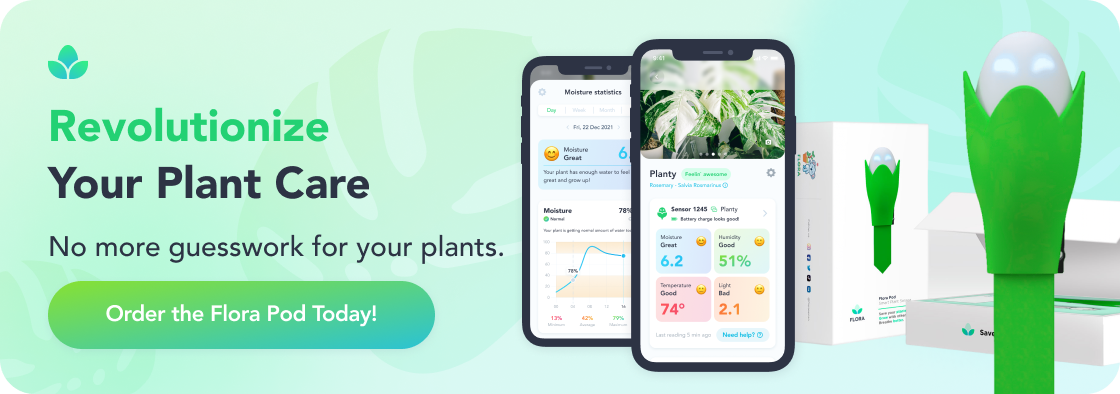5 Common Orchid Problems: Identification and Management
Orchid enthusiasts often encounter a range of orchid problems that can impact the health and aesthetics of their beloved plants. From orchid leaf problems to issues with blooms and pests, this listicle explores five common orchid problems.
Understanding how to identify and manage these challenges is essential for anyone passionate about caring for their orchids. Whether dealing with orchid pests or other orchid types' specific issues, this guide aims to provide clear, actionable advice to help you maintain the health and beauty of your orchids.
1. Shriveling Buds
Identification
Buds become desiccated and fall off before blooming, a common issue in Phalaenopsis orchids.
Causes
Can result from:
Abrupt changes in temperature or humidity
Insufficient watering
Inadequate light
Extreme fluctuations in environment or improper care can stress the buds.
Management
Ensure a stable, warm environment without sudden temperature drops.
Provide consistent, moderate watering and bright, indirect sunlight.
Shield the plant from direct drafts and maintain a steady humidity level.
2. Spotted Blooms
Identification
Brown or dark spots appear on lighter-colored flowers, particularly noticeable on white blooms.
Causes
Typically a sign of botrytis, a fungal infection. Occurs in high humidity or when water remains on flowers.
Management
Improve ventilation around the orchid
Reduce ambient humidity
Avoid water droplets on blooms
Apply a fungicide designed for orchids, and remove affected blooms to prevent spread
3. Pleated Foliage
Identification
Foliage develops accordion-like creases or pleats, commonly seen in thinner-leaved orchids like Miltoniopsis.
Causes
Often a result of:
Inadequate humidity
Irregular watering
Causing stress to the leaves.
Management
Provide a consistent watering schedule, ensuring the orchid's potting medium is evenly moist but not soggy.
Use a humidifier or misting to increase humidity, especially during the growth phase of leaves and buds.
4. Dropping Leaves
Identification
Leaves become limp, wilted, or show signs of decay.
Causes
Usually indicates root rot, often due to over-watering or a potting mix that doesn't drain well.
Management
Check for soggy or decaying roots and repot in a fresh, well-draining orchid-specific mix.
Reduce watering frequency and ensure the pot has adequate drainage holes.
Monitor soil moisture levels to prevent waterlogging.
5. Brown Leaf Tips
Identification
One of the orchid leaf problems include brown tips at the lead. You can identify it by noticing the tips of leaves turn brown and die back, starting from the edges.
Causes
Often a sign of fertilizer burn caused by over-fertilization or too concentrated a fertilizer.
Management
Use a balanced orchid fertilizer, diluted to half the recommended strength.
Avoid applying fertilizer too frequently and flush the potting mix periodically to remove excess salt build-up.
Ensure proper watering to avoid concentration of fertilizer salts in the potting medium.
Addressing orchid problems effectively is crucial for ensuring the longevity and vibrancy of these exquisite plants. This listicle has covered five common orchid pests and orchid leaf problems, offering practical solutions to manage and resolve these issues.
By staying vigilant and applying these management strategies, orchid enthusiasts can enjoy the full splendor of various orchid types, keeping their plants healthy and flourishing. Remember, understanding and responding to the specific needs of different orchid types is key to successful orchid care.
Fern's Leafy Learnings
Stable Environment for Bud Health: Maintaining a stable environment and proper lighting is crucial to prevent shriveling buds.
Fungal Infection Prevention: Proper air circulation and humidity control are key to avoiding fungal infections that cause spotted blooms.
Consistent Moisture for Leaf Health: Ensuring consistent watering and humidity levels helps prevent pleated foliage, a sign of environmental stress.
Root Health through Proper Watering: Over-watering is a common cause of root rot, leading to dropping leaves; proper watering and drainage are vital.
Balanced Fertilization: Over-fertilization causes brown leaf tips; it’s important to use a balanced fertilizer at the correct strength.
Flora: Your Companion in Every Growth Stage
Just like every leaf and petal, every plant parent's journey is unique. Flora stands by you, ensuring that your path is sprinkled with joy, learnings, and thriving greenery. Whether through our diverse collection of plants, pioneering Flora Pod™, or our heartwarming community, your plant adventures are endlessly enriched and supported.
With us, every plant is a story, and every story is worth sharing and nurturing, from the first bud to the fullest bloom.
Ready to embrace your green adventures? Find your next plant buddy at Flora today!
Flora Pod™ is featured on Shark Tank!

Shop Plants
Top 10 Most Popular Roses
Mar 22, 2022
How to Care for China Roses
Mar 11, 2022
How to Care for Chinese Money Plants
May 15, 2020
How to Grow and Care for A Bird of Paradise
Apr 26, 2020
Top 10 Plants To Grow In A Terrarium
May 31, 2022
How to Grow and Care for Lucky Bamboo
Mar 29, 2022
How to Grow and Care for Corn Plants
Mar 29, 2022
How to Care for Madagascar Dragon Trees
Mar 21, 2022




